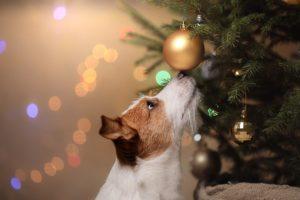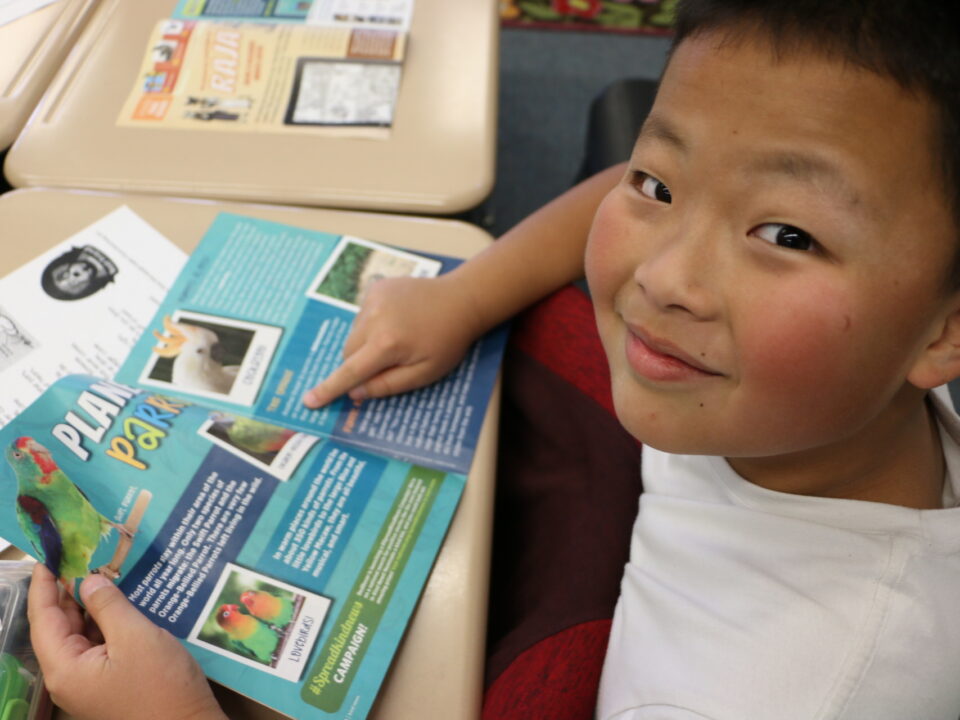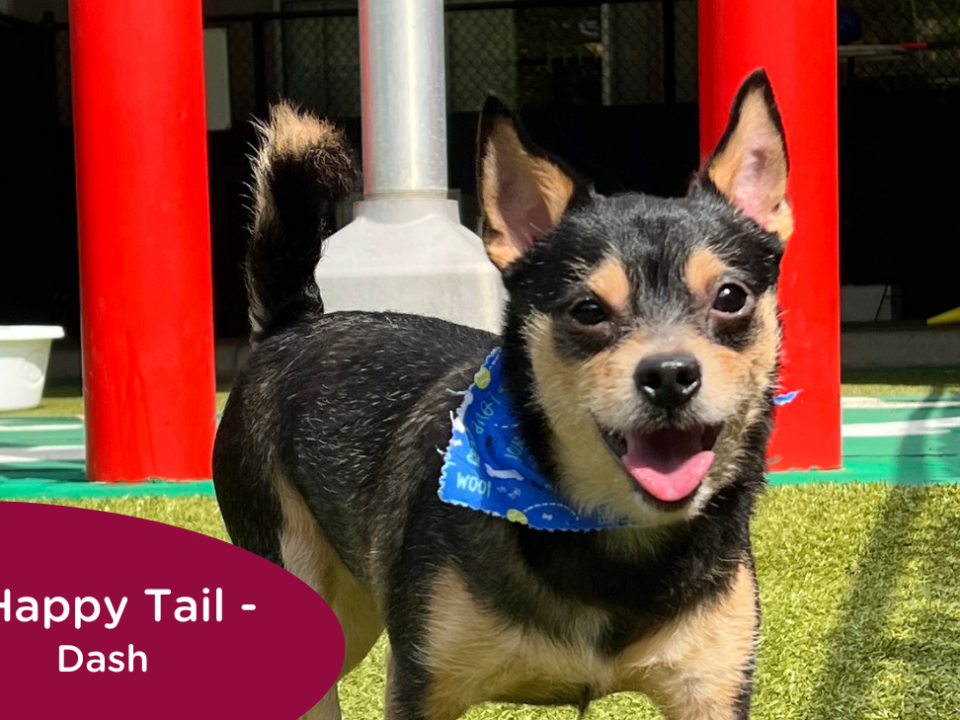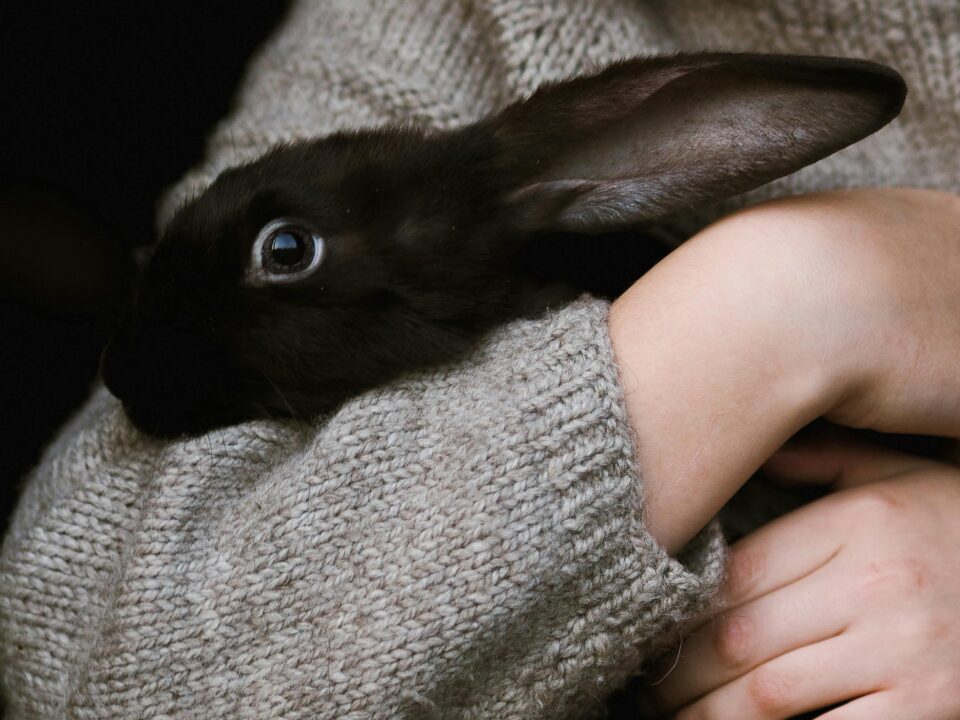5 Holiday-Season Dangers for Dogs – and How to Protect Your Pet
November 29th, 2018

By Richard Cross, Guest Blogger
The holiday period can be a time for everyone in the family to de-stress, celebrate and indulge – including your canine friend.
However, large amounts of food, decorations and guests create a host of new dangers for your dog. Everything from decorative plants to Christmas dinner can be toxic — which is why holiday emergency vet visits are common.
Fortunately, there’s no reason your dog can’t have an enjoyable and safe holiday – as long as you’re aware of potential hazards. Here are five dangers to avoid this year.
1. Guests Can be Stressful for Your Pet
Many dogs love spending time with guests over the holidays. They get extra attention, more people to play with and lots of treats — what more could a dog want?
But even for the most sociable dogs, it’s important to remember that a busy home can be stressful. This is especially true when it comes to young children or people who don’t know how to politely interact with dogs. If a dog starts to feel overwhelmed and trapped, he may decide that defensive aggression is the only solution.
To prevent mishaps, make sure every guest follows some basic guidelines. Always provide a quiet, comfortable spot for your pet away from excitement and noise, and ask guests to leave him alone when he goes there. You should also teach children to give a dog space when eating, sleeping or playing with a high-value toy (such as a chew), and make sure they avoid rough play.
Most importantly, keep an eye on your pet for signs of stress. Panting, lip licking, “shaking off” and turning away from guests are all signs he might need time alone.
2. Be Aware of Dangerous Foods and Other Substances
Along with guests, food is one of the most common dangers for dogs during the holiday season. Examples of toxic foods include Christmas pudding, alcohol, chocolate, mince pies, grapes, onions and cooked bones.
As a general rule, avoid giving your pet food or drink that hasn’t been made specifically for dogs. While your pet may enjoy leftovers (and it’s natural to want your dog to be part of the festivities), there are many human foods that are toxic to canines.
It’s also important for guests to understand that they shouldn’t feed your dog scraps or treats unless they ask you first. This can help prevent an unwanted trip to the emergency vet.
For more information about dangerous substances, RedRover has published a list of toxic holiday foods.
3. Use Artificial Plants for Decoration
Many of the plants we associate with Christmas can be toxic to dogs. Symptoms range from mild discomfort to severe reactions, depending on the type and species of plant. Some examples include:
- Mistletoe. The berries of European mistletoe can cause your dog to have an upset stomach. American mistletoe is potentially even more dangerous, but both types are best avoided if you have a dog.
- Poinsettia. Eating poinsettia can cause irritation to the mouth, throat and stomach. It may also cause vomiting. While the dangers of this plant are often overstated, it can certainly cause unpleasant effects if eaten.
- Ivy. Eating ivy from wreaths or other decorations can cause your dog to have an upset stomach.
It’s easy to replace toxic plants with artificial alternatives, so this is the best way to keep your dog safe. If you must have the real thing, ensure plants are kept out of reach at all times.
4. Other Decorations Can Also be Dangerous if Ingested
Chocolate tree decorations, wrapping paper and tinsel can all be dangerous to dogs. If ingested, these items may cause intestinal blockages that need urgent medical attention. Small items are also a choking hazard.
For this reason, make sure all decorations are out of reach. Be particularly careful with tree decorations that can easily fall onto the floor.
Keep in mind that decorations aren’t just dangerous to inquisitive puppies who are going through the teething stage. Even if your dog rarely takes interest in household items, the novelty of decorations can make them a dangerous chewing target.
5. Batteries are Highly Toxic
With wrapping paper flying everywhere and toys littering the floor, it can be easy to lose track of batteries that are included with gifts.
Unfortunately, this is why battery ingestion is more common for dogs over the Christmas period. Eating a battery can cause severe internal burning and poisoning to dogs, as the acidic material leaks.
For this reason, it’s important that everyone is aware of the potential dangers of batteries for pets. Be particularly cautious of lithium or disc-shaped batteries, which are more likely to cause chemical damage.
If you suspect your dog has eaten a battery, contact a vet immediately. Common symptoms include drooling, loss of appetite, pain and fever.
As you make your holiday plans, keep your canine friends in mind. With some forethought and a little extra care, you and your pets can both enjoy a safe and festive holiday season!
___
 Richard Cross is a dog expert and journalist who is currently editor of The Dog Clinic. His goal is to help people build a stronger bond with their pet through positive reinforcement training and a deeper understanding of canine behavior.
Richard Cross is a dog expert and journalist who is currently editor of The Dog Clinic. His goal is to help people build a stronger bond with their pet through positive reinforcement training and a deeper understanding of canine behavior.



